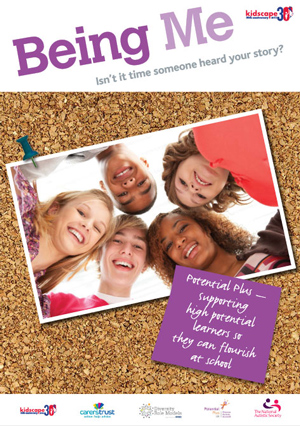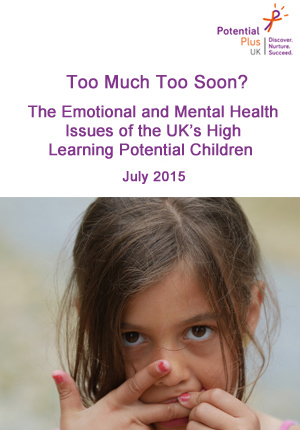Potential Plus UK Publications and Reports
The following publications and reports have been published by Potential Plus UK (formerly known as National Association for Gifted Children) or by Potential Plus UK in association with other organisations. They are available to download for free or at a small cost from this shop.
-
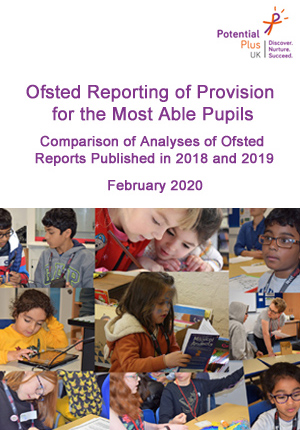 Potential Plus UK carried out analyses of all reports published by Ofsted following inspections of schools in the months of June 2018 and June 2019. This report gives information about both analyses and compares them to see whether there are changes over time in the reporting of provision for most able pupils. The findings of the analyses and comparison between them indicate that a consistently high percentage of schools (44%) do not have good enough provision for their most able pupils, leading to these pupils not making the progress that they should.
Potential Plus UK carried out analyses of all reports published by Ofsted following inspections of schools in the months of June 2018 and June 2019. This report gives information about both analyses and compares them to see whether there are changes over time in the reporting of provision for most able pupils. The findings of the analyses and comparison between them indicate that a consistently high percentage of schools (44%) do not have good enough provision for their most able pupils, leading to these pupils not making the progress that they should. -
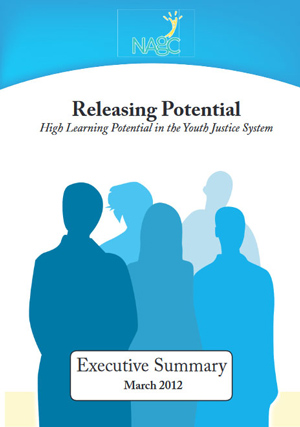 Alongside emotional and social difficulties, gifted children in the criminal justice system often come from a background of little stability, disruptive educational careers and no clear guidance for their future. This research report executive summary, from 2012, considers the hypothesis that many young offenders have high learning potential and that identifying and working with young people in the criminal justice system with high learning potential, who may not display traditional or academic giftedness, may prevent reoffending and keep them from embarking on a criminal career.
Alongside emotional and social difficulties, gifted children in the criminal justice system often come from a background of little stability, disruptive educational careers and no clear guidance for their future. This research report executive summary, from 2012, considers the hypothesis that many young offenders have high learning potential and that identifying and working with young people in the criminal justice system with high learning potential, who may not display traditional or academic giftedness, may prevent reoffending and keep them from embarking on a criminal career. -
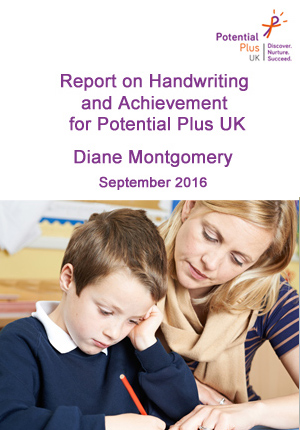 Are pupils with extreme giftedness denied opportunities for achievement because of unrecognised difficulties in handwriting? A report of a survey of Potential Plus UK members in 2016 by Diane Montgomery, designed to find out the nature of any problems in writing and spelling in a group of children with high learning potential.
Are pupils with extreme giftedness denied opportunities for achievement because of unrecognised difficulties in handwriting? A report of a survey of Potential Plus UK members in 2016 by Diane Montgomery, designed to find out the nature of any problems in writing and spelling in a group of children with high learning potential. -
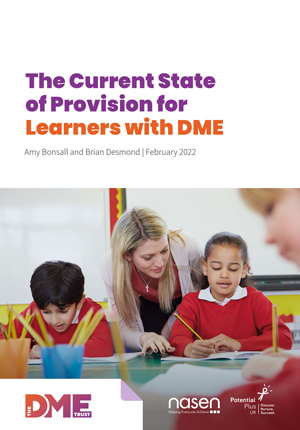 This report from 2022 considers the provision that exists for learners with dual or multiple exceptionality (DME) – learners who have both special education needs or disabilities and high learning potential – through the experiences of parents, carers, educators and service providers. This research was jointly commissioned by Potential Plus UK and nasen in association together as The DME Trust.
This report from 2022 considers the provision that exists for learners with dual or multiple exceptionality (DME) – learners who have both special education needs or disabilities and high learning potential – through the experiences of parents, carers, educators and service providers. This research was jointly commissioned by Potential Plus UK and nasen in association together as The DME Trust. -
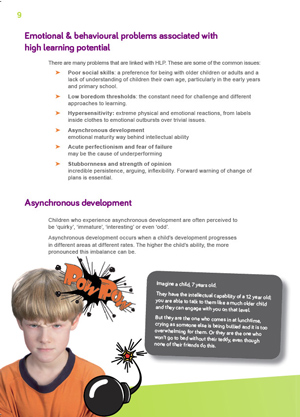
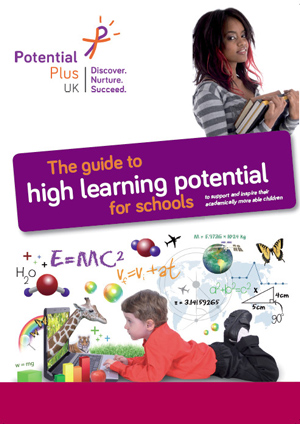 This booklet helps schools to understand high learning potential. It covers recognising children with high learning potential in the classroom, myths and realities, asynchronous development, what dual or multiple exceptionality (DME) is, and tips for supporting children with high learning potential in the classroom.
This booklet helps schools to understand high learning potential. It covers recognising children with high learning potential in the classroom, myths and realities, asynchronous development, what dual or multiple exceptionality (DME) is, and tips for supporting children with high learning potential in the classroom. -

 FREE POSTAGE TO UK ADDRESSES This little gem of a booklet is to help schools understand high learning potential and has been used for successful advocacy on many occasions. It covers recognising high learning potential children in the classroom, myths and realities, asynchronous development, what dual or multiple exceptionality (DME) is, and tips for supporting high learning potential children in the classroom. Get your hard copy now!
FREE POSTAGE TO UK ADDRESSES This little gem of a booklet is to help schools understand high learning potential and has been used for successful advocacy on many occasions. It covers recognising high learning potential children in the classroom, myths and realities, asynchronous development, what dual or multiple exceptionality (DME) is, and tips for supporting high learning potential children in the classroom. Get your hard copy now!



